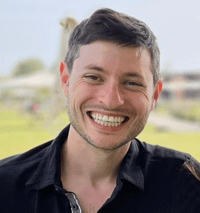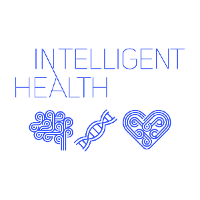Ahead of his workshop session 'Working together with enterprises and clinicians to build tools and work flows that are compliant and scalable' at Intelligent Health UK 2022 (6-7 April, ExCeL London), we asked Kyle Giddens, CEO & Co-Founder, medcase health his thoughts on the future of AI in healthcare.

If you could solve any global health problem in the world with AI, what would it be?
Make medical expertise available on-demand. Right now, we have a lot of broken-bits of knowledge, expertise
and data points spread out across the world. Much like putting a puzzle together, a lot of time is being spent finding these pieces and connecting them together. Imagine if the cure for certain diseases were already out there, but separated in the minds of different individuals or stored in different data sets. In a better world, AI would enable all these to be organized and connected together. There would be a continuous network and stream of medical expertise that would be available as soon as any clinical idea needs to be explored.
Presuming that was solved, what would your second choice be?
Alleviate the burden of the global shortage of clinicians. The WHO estimates that there is a 4.3 million global shortage of physicians, nurses and healthcare professionals. Through streamlining patient journeys, assisting diagnostic processes, and improving workflows, I would love to see clinicians be able to spend their time in the most efficient way possible.
How do you think AI will make its biggest mark in healthcare in the next 5 years? 10 years? 20 years?
5 years - In the very near future, I would expect to see that our populations will have increased accessibility to healthcare, through the use of AI-enabled disease screening, diagnostics and telehealth tools.
10 years - Recently we are seeing AI and machine learning being used frequently in the discovery of new gene functions and activation. I am hopeful that this will ultimately translate to many more new drugs, particularly in immuno-oncological and genetic diseases.
20 years - Who knows? Following on from what I think could happen in 10 years, maybe AI will help us make discoveries to enable us to breathe on Mars!
What excites you most about the application of AI in healthcare?
To lead to better patient outcomes and make the world a better place, of course! We often talk about technology ‘making the world a better place’. But how often does that happen? In healthcare, AI has made the world a better place!
What’s your biggest fear in relation to the application of AI in the health/medicine field?
With the growing use of technology, more of our population has become digital literate. However, there will always be patient populations that struggle with technology. For example in the UK, it is estimated that 12% of people have limited abilities online. We need to be careful as to not exclude these groups and ensure that the technology for them is as user-friendly and simple as possible. This is why AI companies need to invest resources working with clinicians - because they are the ones that spend the most time with their patients and are most likely to give us insight into their needs.
How do you think AI will cause human contact in healthcare to change in the future?
Healthcare will always require compassion, kindness and affection - qualities provided by human contact that we are not trying to replace using AI. However, AI does allow, from the clinician’s point of view, for more mundane tasks to be automatically completed. From the patient’s point of view, AI allows them to efficiently prepare before in-person visits. Ultimately, this frees up time for both the patients and clinicians to make their in-person opportunities more meaningful.
What does AI mean for the skill requirements of health professionals? How will it change?
Most of our working population are either digital immigrants or were born into the digital era - they have high adaptability to technology as long as interfaces are user friendly. Having said this, I would love to see clinicians be more exposed to the basic concepts of AI and technology - perhaps even basic training should be provided at medical schools! I believe that it is this knowledge and understanding that would enable better collaboration between healthcare professionals and tech companies to ultimately develop future innovations.
Which 2 people do you admire most in the world of AI in healthcare in terms of their work?
Andrew Ng - as a pioneer in deep machine learning and online education, Andrew created invaluable platforms for everyone and anyone to learn about AI and healthcare, amongst other subjects. He has allowed engineers to gain insight into healthcare and clinicians to access AI knowledge, enhancing and highlighting the intricate relationship between the two. Through his work, we are now able to build a foundation on which healthcare professionals, machine learning engineers and AI innovators can interact.
Demis Hassabis - CEO and co-founder of DeepMind. Although DeepMind was more well known for developing AlphaGo, the first program to defeat a professional human Go player, they also used AI to solve the 50-year old protein folding problem, giving us a better understanding of the molecule that literally makes up life itself! This inspiring breakthrough demonstrates the potential of machine learning in solving century-old (half century-old, in this case) medical science mysteries and makes the prospects of future discoveries very exciting!
Why did you choose to present at Intelligent Health?
We want to bring the mission of Medcase to leading innovators in the industry.
What are your personal goals from the summit?
To meet industry leaders and to learn about the amazing innovations happening in the space of AI and Healthcare.
Twitter username
We look forward to welcoming him on stage! Join Kyle and the AI and healthcare community at Intelligent Health UK to break down the barriers between tech and healthcare and help #saveliveswithai.
The Intelligent Health team
About Intelligent Health UK
Now in its third year, Intelligent Health UK, in partnership with The NHS AI Lab, NIHR, The Health Innovation Network, AHSN Network, and DigitalHealth.London, will bring together our collective communities to the ExCeL London on the 6th and 7th April 2022.
The AI and healthcare community - clinicians, hospital heads, data scientists, startups, academics, and investors, will come together for two days of collaboration and co-creation, to address how AI can be used to alleviate the elective backlog, improve population health, increase operational efficiencies and drive forward moonshot projects as the NHS recovers from the COVID-19 pandemic.




